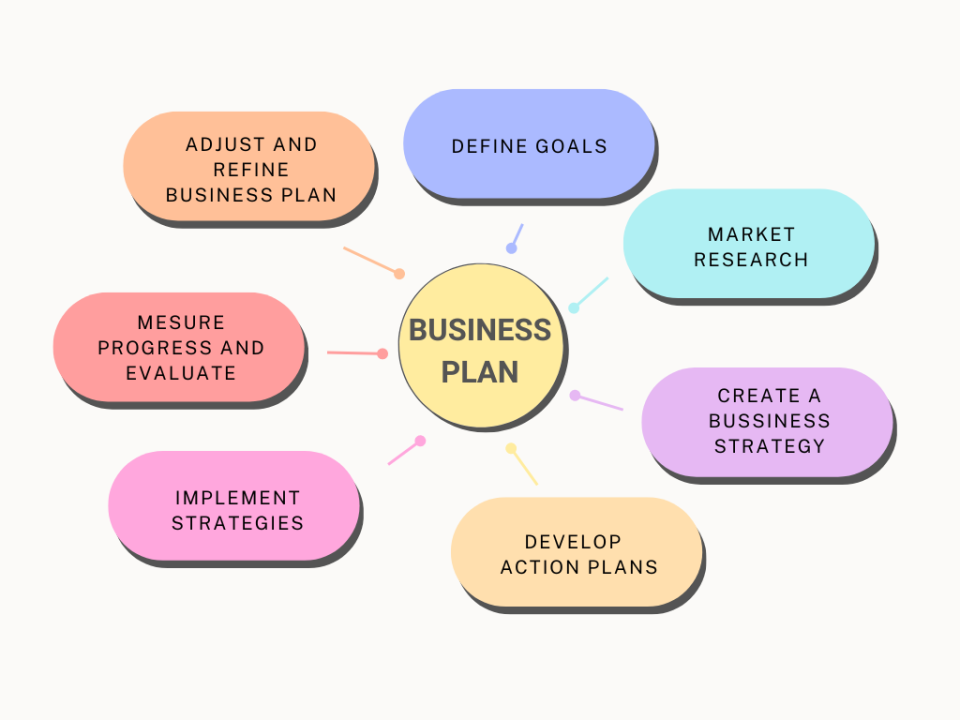Building a Business Plan
Creating a business plan is a critical step for anyone looking to start a new venture or improve an existing business. This document not only serves as a roadmap for your business but also communicates your vision and strategies to potential investors, partners, and other stakeholders.

Why a Business Plan is Essential
1. Defining Your Vision and Mission
A well-structured business plan helps clarify your vision and mission. These elements guide your decision-making process and establish a clear purpose for your business. A compelling vision statement inspires your team and aligns everyone towards a common goal. Additionally, your mission statement defines the core objectives and values of your company.
2. Attracting Investors and Funding
When seeking funding, having a solid business plan is crucial. Investors want to see a comprehensive plan that demonstrates your understanding of the market, the potential for growth, and how their investment will be used. A detailed plan shows that you are serious about your business and have taken the time to think through your strategy. According to Investopedia, a business plan can increase your chances of securing funding by up to 40%.
3. Guiding Your Business Strategy
Your business plan serves as a strategic tool to guide your company’s direction. By laying out specific goals and actionable steps, you can measure progress and adjust strategies as necessary. It provides a framework for evaluating your business performance and making informed decisions that align with your goals.
Key Components of a Business Plan
A business plan typically includes several essential components that help structure your ideas and strategies effectively. Here’s a closer look at these key elements:
1. Executive Summary
The executive summary is often regarded as the most critical part of the business plan. It provides a concise overview of your business and summarizes the key points from the entire plan. This section should grab the reader’s attention and entice them to read further.
2. Company Description
In the company description, provide detailed information about your business, including its legal structure, location, and the products or services you offer. This section should outline your unique selling proposition (USP) and explain what sets your business apart from the competition.
3. Market Analysis
Conducting thorough market analysis is vital for understanding your target audience and the competitive landscape. This section should include demographic information, market trends, and an analysis of your competitors. By understanding the market, you can better position your business for success.

4. Organization and Management
The organization and management section outlines your business’s structure and introduces your team. Include bios of key team members, their roles, and relevant experience. This helps establish credibility and shows that you have the right people in place to execute your business plan.
5. Marketing Strategy
Your marketing strategy should detail how you plan to attract and retain customers. Discuss your pricing strategy, advertising methods, and sales tactics. It’s essential to outline how you will reach your target market and the channels you will use for promotion.
6. Financial Projections
In the financial projections section, include your revenue forecasts, profit margins, and funding requirements. Present realistic financial estimates based on thorough research. This section may include projected income statements, cash flow statements, and balance sheets for the next three to five years.
Step-by-Step Guide to Writing a Business Plan
Creating a business plan can seem overwhelming, but breaking it down into manageable steps makes the process easier.
1. Research and Gather Information
Begin by gathering relevant data about your industry, market trends, and competitors. This information will form the foundation of your business plan and help you make informed decisions.
2. Create an Outline
Develop a clear outline based on the key components of a business plan. This structure will guide your writing and ensure you cover all necessary elements.
3. Write the Executive Summary
Start with the executive summary, as it will summarize your entire plan. Make it compelling and concise, capturing the essence of your business and what you aim to achieve.
4. Detail Your Market Analysis
Provide in-depth information about your target market, including demographics and psychographics. Analyzing competitors and identifying market gaps will strengthen your position in the industry.
5. Outline Your Marketing Strategy
Define your marketing approach, including branding, pricing, promotion, and distribution channels. This section should highlight how you will reach and retain customers effectively.
6. Create Financial Projections
Develop financial projections using realistic assumptions. Include various scenarios to demonstrate how your business can adapt to different market conditions.
Tips for Writing an Effective Business Plan
To make your business plan as effective as possible, keep these tips in mind:
1. Keep it Clear and Concise
Avoid jargon and overly complex language. Write in clear, straightforward terms that are easy to understand.
2. Use Visuals and Charts
Incorporate charts and graphs to illustrate data and projections visually. Visual aids can help communicate your points more effectively and engage your readers.
3. Tailor Your Plan to Your Audience
Consider who will read your business plan and tailor your content accordingly. Different audiences may require different levels of detail or focus.
By following these guidelines and structuring your business plan thoughtfully, you set the foundation for a successful venture. In the next section, we will explore common mistakes to avoid when creating a business plan.
Stay tuned for the continuation of this guide!
Common Mistakes to Avoid When Writing a Business Plan
Creating a business plan is a significant investment of time and resources. However, many entrepreneurs make critical mistakes that can undermine their efforts. Here are some common pitfalls to avoid:
1. Lack of Research
A business plan grounded in inadequate research can lead to unrealistic projections and misplaced confidence in the market. Ensure that you conduct thorough research to understand industry trends, customer needs, and competitor dynamics.
Tip: Use reputable sources like the Small Business Administration (SBA) and industry reports to gather valuable insights.
2. Overly Optimistic Projections
While it’s important to be positive about your business’s potential, overly optimistic financial projections can raise red flags for investors. Provide realistic estimates based on data and be prepared to explain your assumptions.
3. Ignoring the Competition
Many entrepreneurs overlook the importance of competitor analysis. Ignoring your competitors’ strengths and weaknesses can result in missed opportunities and challenges.
Quote: “The essence of strategy is choosing what not to do.” — Michael Porter
4. Incomplete Financials
Failing to include comprehensive financial data can weaken your business plan. Ensure that you present detailed financial projections, including break-even analysis, cash flow, and income statements.
5. Not Revising and Updating
A business plan is not a static document. It should evolve as your business grows and as market conditions change. Regularly revisit and update your plan to reflect new goals and insights.
FAQs About Business Plans
Q: How long should a business plan be?
A: The ideal length of a business plan varies, but it generally ranges from 15 to 30 pages. The key is to be thorough yet concise.
Q: Do I need a business plan for a small business?
A: Yes, a business plan is essential for any business, regardless of size. It helps you clarify your vision and can be crucial for attracting investors.
Q: Can I create a business plan without financial expertise?
A: While having financial expertise is beneficial, various templates and resources are available to help guide you through the process of creating financial projections.
Q: Is it necessary to include a marketing plan in my business plan?
A: Absolutely! A marketing plan outlines how you will reach your target audience and is critical for demonstrating the feasibility of your business.
Conclusion: The Path to Success Starts with a Business Plan
Building a comprehensive business plan is essential for laying the groundwork for your entrepreneurial journey. Not only does it serve as a roadmap for your business, but it also communicates your vision to potential investors and partners. By avoiding common pitfalls and following best practices, you can create a compelling business plan that sets your venture on a path to success.
Additional Resources
- Books: Consider reading “Business Model Generation” by Alexander Osterwalder and Yves Pigneur for more insights into business planning.
- Templates: Websites like Bplans offer free business plan templates to help you get started.
- Consultation: If you’re struggling to create your plan, consider consulting with a business advisor or mentor for personalized guidance.
By investing the time and effort to create a thorough and effective business plan, you not only increase your chances of success but also equip yourself with the necessary tools to navigate the complexities of starting and running a business. Your journey to entrepreneurship begins here, so take the next step today!


